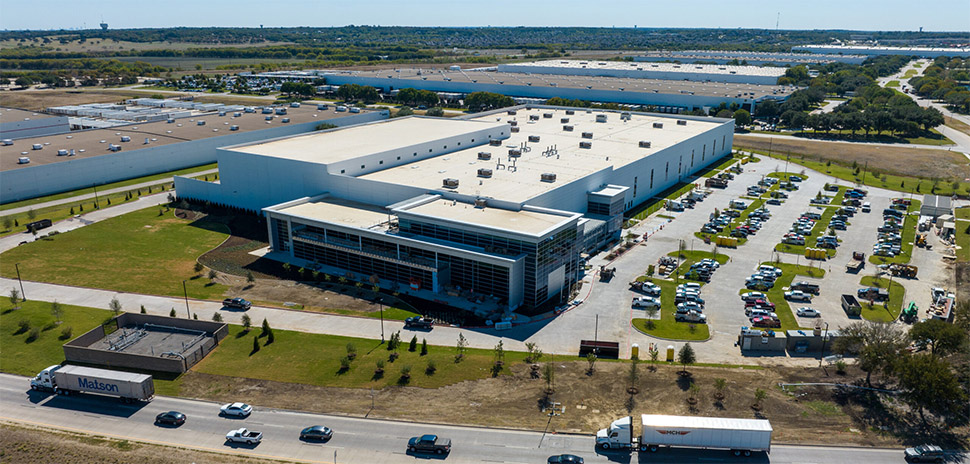The Dallas-Plano-Irving metro division has been ranked the No. 8 Best-Performing Large City in the U.S. in a new report by the widely respected Milken Institute.
The Milken Institute is a widely respected, non-partisan economic think tank whose scholars consult for government and private organizations. Its new 2024 report is based mainly on data from 2022, when the U.S. labor market added more than 6 million jobs, “90.7% of which were in metropolitan areas, proving the importance of cities to the nation’s growth,” the institute said.
According to the 2024 Milken Institute Best-Performing Cities Index, the Dallas-Plano-Irving metro division earned its top 10 spot based on 13 key components, including job growth, wage growth, high-tech sector impact, broadband coverage, community resilience, housing affordability, and more.
Labor market strength a big reason for Dallas metro’s ranking
Per the study, the Dallas–Plano–Irving metro area is an economic powerhouse within the Tier 1 cities in the U.S., especially when it comes to the labor market. The region has demonstrated an ability to generate employment opportunities, securing the No. 5 rank in job growth for the 2021-2022 period.
While Dallas-Plano-Irving dropped two spots from last year’s ranking on the index, it “remains a Tier 1 city for a third straight year, largely because of the continued strength of its labor market,” the institute said.
That strength is mirrored in wages, with Dallas taking the No. 9 spot in wage growth for the same period, indicating that the jobs being created are also paying better.
Citing the metro’s “excellent job performance,” the report said that was led by the professional and business services sector, which accounts for 20.9% of the city’s workforce and grew by 28% from 2017 to 2022.
“Dallas ranked in the top 10 large cities in all job growth categories and in one-year wage growth,” the report noted. “The metro area performs well in most components of the rankings, scoring above the large cities’ median in all components, except housing affordability and income inequality.”
“One of the most diverse economies”
The report noted that the Dallas metro hosts a variety of Fortune 500 companies, including AT&T, McKesson, and American Airlines, while having “one of the most diverse economies in the country, being a regional hub for information technology, finance, transportation, and defense.”
Milken cited a Dallas Regional Chamber study that showed Dallas has added back 157% of the jobs lost during the pandemic, trailing only Austin—the Milken index’s top-performing city this year—among Texas cities.
That labor fortitude is reflected in the metro’s short-term job growth, ranking No. 10 in the report.
The high-tech sector is a significant pillar of the Dallas metro’s economy, evidenced by its No. 18 rank in high-tech GDP concentration, signifying a strong presence of high-tech industries, such as information technology, biotechnology, and advanced manufacturing in the city’s economic mix.
A major strength? “Dallas ranks among the top 25 large cities across all job and wage growth categories partly because of its ability to attract businesses from a wide range of sectors,” according to the report.
It also notes the metro has “maintained its high-tech GDP growth, despite already ranking high on high-tech concentration.”
The index, published annually since 1999, reflects cities’ effectiveness at leveraging their resources to promote economic growth and provide their residents with access to the essential services and infrastructure needed for success, the institute noted. Based on job creation, wage growth, and the high-tech sector’s output growth, the index also measures access to economic opportunities.
“Recognizing the importance of sustainable and equitable growth, this year the index also includes metrics of communities’ ability to respond to economic and natural disasters and income inequality,” the institute noted.
Resilience a key factor
One thing the institute especially noted about top-performing large metros like Dallas-Plano-Irving: resilience.
“The labor market displayed remarkable resilience in 2022,” Maggie Switek, PhD, senior director of the Milken Institute’s Research Department, said in a statement.
“By the end of the year, total U.S. employment exceeded its pre-pandemic level, though the national statistics mask important differences across metropolitan areas. Many low-tier large and small cities continued to struggle, with employment numbers that remained below their 2019 levels. This signals that the pandemic has had long-lasting impacts on the economy of several metropolitan areas.”
Austin tops the 2024 list at No. 1
The Milken Institute put Austin at the top of its Best-Performing Large Cities list, due to its “rapid job and wage growth along with a robust high-tech sector.”
Austin was followed from No. 2 to No. 5 on the list by the metro areas of Raleigh, North Carolina; Boise City, Idaho; Salt Lake City, Utah; and Provo, Utah.
The 2024 index and rankings are mainly based on data from 2022, the institute said. During that year, the U.S. labor market added more than 6 million jobs, 90.7 percent of which were in metropolitan areas, proving the importance of cities to the nation’s growth.
You can get the full 2024 Milken Institute report by going here.
Quincy Preston contributed to this report.
![]()
Get on the list.
Dallas Innovates, every day.
Sign up to keep your eye on what’s new and next in Dallas-Fort Worth, every day.




































































